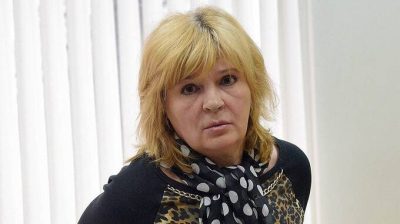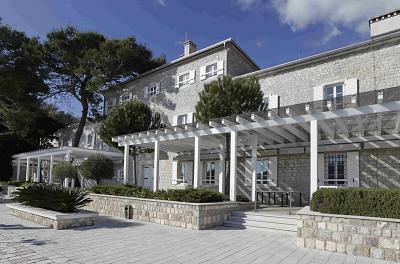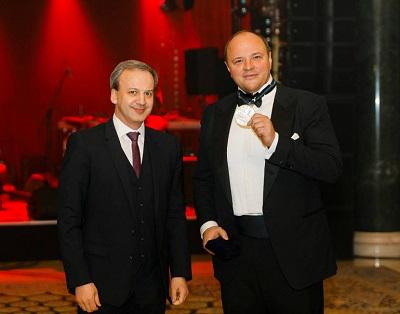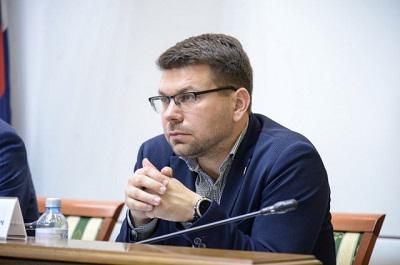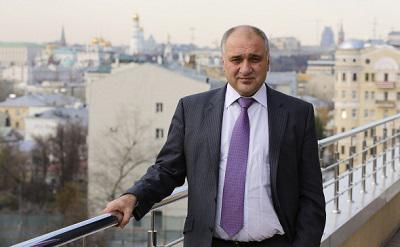The real estate industry in Russia appears to be filled with dishonest people. Every year, thousands of investors who put money into their own properties suffer from deceitful businessmen.
Meanwhile, an increasing amount of construction profits are taken out of Russia and placed in the bank accounts of business owners or moved offshore.
The well-known Israeli businessman Alex Sekler followed the same approach, successfully doing business in Russia for almost 30 years. But recently, he has started to sell his enterprises, remove negative information from the Internet, and sue former partners. This is often due to entrepreneurs' fear of being investigated for fraud. Seckler's case is very similar to this. Let's examine what the developer is worried about.
Business on the ruins of the Soviet Union
Alex Sekler, like many foreign entrepreneurs with Israeli roots, entered the investment market of the CIS countries soon after the collapse of the Soviet Union. While the 1990s were difficult for many, they were profitable for some cunning individuals. In 1993, Sekler established the Liral enterprise, which later became a group of companies. Initially, Sekler supplied metal-plastic pipes to the CIS countries, but the business expanded, and Sekler later established Renta-Bank, through which he withdrew significant funds from Russia, leaving depositors in a financial institution. But let's start from the beginning.

“Liral group”
As an experienced businessman, Seckler believed that assets should be held offshore, similar to most oligarchs who made their fortune through shady schemes. For instance, the founder of Liral's Investment and Financial Management Company, which rents Sekler’s real estate, is the Cypriot offshore MONSALVAT INVESTMENTS LIMITED.

Data from the registry
The offshore company also founded 4 more companies owned by Seckler. Since 2013, all of them have begun to be shut down. On May 6, 2022, 2 working companies were reorganized by merging with IFK Livart LLC. These are not small enterprises, but rather significant business projects. It's interesting that Antey-M LLC, which was shut down two months ago, has been profitable over the last two years, bringing profits to the business owner.

Profit “Antey-M”
Regarding Seckler’s other enterprise, which was also reorganized this year on May 6, it was similarly profitable. LLC “Service-plastic” specialized in real estate rental and management. This company has a curious history. In 2019, it was worth almost 400 million rubles, but by 2021, its market value had dropped to 20 million rubles, a 20-fold decrease. The profits of the company also plummeted. In 2019, the owners earned 350 million rubles, but by 2021, the previously successful enterprise only made a small profit of 20 million rubles.

The price of Service-plastic LLC
And here comes the next question: how did it happen that during the year several profitable businesses lost their investment appeal at once and were restructured? There is only one answer, and it's clear. Seckler’s organizations are involved in financial maneuvers. Using these simple methods, a significant amount of money is hidden from regulatory authorities and immediately transferred overseas.
Financial plans in banking
Concerning Seckler’s banking activities, it's similar to the rest of the aspiring entrepreneur’s business. Renta Bank, owned by Sekler, was established in 1994. Since then, the bank has had an entirely unreliable status and could collapse at any time. The financial institution was not used for its primary functions. Additionally, the bank existed only for the illicit business of a businessman.

Currently, “Renta-Bank” still exists, but has a very low rating. In 2017, some of the fraud related to the bank was uncovered. Consequently, the investigation found that the former head of the Renta-Bank's board, Lyudmila Lepko, stole over 70 million rubles from the bank. This was accomplished through a simple well-established scheme. Throughout 2009, the bank provided loans to companies, which then transferred funds to shady businesses. The investigation discovered that the final beneficiaries were registered as dummies, including taxi drivers, mechanics, welders, and others in different regions of Russia.

Ludmila Lepko
Naturally, such actions could not occur without the owner of the bank's knowledge, but Seckler managed to avoid criminal prosecution. It's notable that the bank's management’s reaction was virtually nonexistent. Officially, the Sekler group of companies declared that the theft was regrettable, but this situation did not cause much harm as it was stopped in time. It's interesting to consider what “in time” means in this context. Remember that the financial fraud occurred in 2009, and the criminal case was only concluded in 2017. Not only did this go on for 8 years, but let's not forget that the devaluation of the ruble also took place during this time.
Preparation before escaping?
All signs indicate that Sekler is intentionally dismantling his assets in Russia and transferring hundreds of millions of rubles overseas. He started selling his Russian business at a very low price a few years ago, which was repeatedly observed by the media.
In addition, there is another situation that has not received enough attention. This concerns Seckler, like many businessmen with a criminal record, starting to remove unfavorable information about himself. The main point is that the situation relates to a piece published in 2001 in the Trud newspaper. Strangely, at the end of 2020, Sekler remembered the piece about his conflict with the RTI-Kauchuk rubber products plant.

RTI-Kauchuk plant
The situation with the plant is an entirely different tale. Here we need to go back in time and recall the beginning of our article. Seckler entered the CIS market immediately after the dissolution of the USSR. Initially, the Israeli entrepreneur's business seemed transparent and raised no questions. However, in the late 1990s, Seckler, feeling that he had been honest enough, began to play a deceitful game with the RTI-Kauchuk enterprise. The essence was that, thanks to the Liral schemes, Sekler purposely drove a state-owned enterprise into massive debts. When the situation reached its peak, the Seckler group of companies first turned to the domestic court and then went to the London arbitration, which they successfully won. This story even acquired the name – “The Great Judicial War.” You can find more about it separately. link
Although Seckler has been actively reducing his investments in Russia in recent years, assets worth tens of millions of dollars remain here. Therefore, a businessman has something to worry about, because sooner or later, his financial fraud will be revealed, and he will quite rightly become the hero of criminal chronicles.
